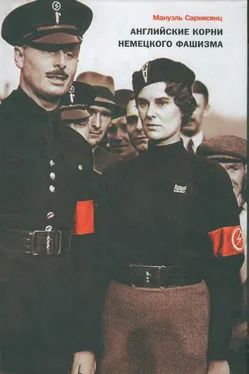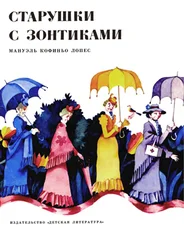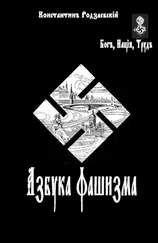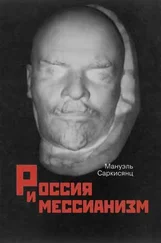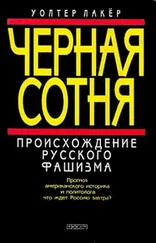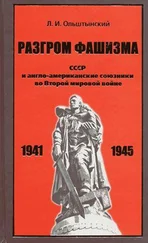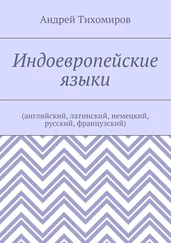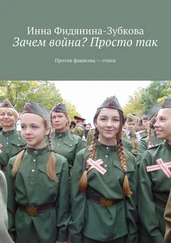VI, p. 503: Document 385; Maurice Cowling, The impact of Hitler. British politics and British policies, 1933–1940 (Chicago, 1977), p. 352.
V. Falin, Die Zweite Front. Interessenkonflikte in der Anti-Hitler-Koalition (Munchen, 1995), S. 109.
M. Cowling, The impact of Hitler on British politics and policies, p. 303.
J. Colvin, The Chamberlain Cabinet (wie Anm. 960b), p. 84, 85.
Captain Maule Ramsay, The nameless War (Berkshire, 1992), pp. 94, 103f; John Costello,Ten Days that saved the West (1991), pp. 114, 115.
Thurlow, Fascism in Britain, p. 166.
Berndt Martin, Friedensinitiativen und Machtpolitik im Zweiten Weltkrieg 1939–1942 (Dusseldorf, 1974), S. 54, 72, 74, 89; K. Lunn and R. Thurlow, British Fascism. An essay on the radical Right in Britain (London, 1980), p. 59.
Colin Cros, Fascists in Britain, p. 192; Griffiths, Fellow-Travellers of the Right, p. 307, 313; Griffiths, Patriotism perverted, p. 39, 32, 293, 294.
Lord Lloyd, The British Case (December, 1939), pp. 55, 53,41, 38, 36; Hedva Ben-Israel, «Im Widerstreit der Ziele. Britische Reaktionen auf den deutschen Widerstand»: Jurgen Schmadeke & Peter Steinbach (Hrsg.), Der Widerstand gegen den Nationalsozialismus. Diedeutsche Gesellschaft und der Widerstand gegen Hitler (Munchen, 1986), S. 747; Griffiths, Patriotism perverted, pp. 66, 195, 296; Werner Maser, Das Regime. Alltag in Deutschland 1933–1945 (Munchen, 1983), S. 280.
Richard Breitmann, Staatsgeheimnisse. Die \erbrechen der Nazis — von den Alliierten toleriert (1999), S. 131, 138; Walter Laqueur, Was niemand wissen wollte… uber Hitlers «Endlosung» (Frankfurt, 1982), S. 85, 107, 252ff; Griffiths, Patriotism perverted, pp. 195, 296.
British Broadcasting Corporation (BBC), Nachrichtensendung in deutscher Sprache vom 3. September 1939; Robert Boyce & E. Robertson, Paths to War. Essays on the origins of the Second World War (New York, 1989), p. 343.
J. Colville, Fringes of Power. Dawning Street Diaries 1939–1955 (london, 1985), pp. 47, 40f.
Adolf Hitler, Monologe, S. 55f: 8., 9., 10., 11. August 1941; Sundermann, S. 124.
Albert Speer, Erinnerungen (Frankfurt, 1969), S. 86; Otto Strasser, Hitler und ich (Konstanz, 1948), S. 243.
Adolf Hitler, Politisches Testament. Die Bormann-Diktate vom Februar und April 1945 (Hamburg, 1981), S. 43.
Leutnant Franz Maria Liedig, Eingabe an Oberkommando der Wehrmacht vom Dezember 1939: Peter Hoffmann, Widerstand, Staatsstreich, Attentat. Der Kampf gegen Hitler (Munchen, 1970), S. 187f; Carley, p. 230, Fn. 51; Colville, p. 41.
Thurlow (as note 787), p. 167.
Bernd Martin, Friedensinitiativen, S. 96; Falin, S. 153.
Clive Ponting, 1940: Myth and Reality (Chicago, 1993), p. 100.
Carley, pp. 238 (Fn 82), 236, 294 (Fn 72); cf. Winston Churchill, Der Zweite Weltkrieg, Bd. III (Bern, 1950), S. 52f, 441 and Gunter Kahle, Das Kaukasus-Projekt der Allierten vom Jahre 1940 = Rheinisch-Westfalische Akademie der Wissenschafte, Vortrage, G 186 (Opladen, 1973), S. 9, 20, 22.
Dokumente zur deutschen auswartigen Politik, Serie D, Bd. VIII. Kriegsjahre. I. Band (Frankfurt, 1961), S. 104, 105, 202, 204f, 285, 288: Dokumente 134, 235, 318 — Aktennotizen vom 25. September 1939 uber Gesprache mit Baron de Ropp.
Missed footnotetext
Ibid., S. 437: Dokument 472 — deutscher diplomatischer Bericht aus Kopenhagen.
Adolf Hitler, Monologe im Fuhrerhauptquartier, S. 110: vain 26./27. Oktober 1941.
Josef Goebbels, Tagebucher. Samtliche Fragmente, Band IV (Munchen, 1987), S. 225: Eintragung vom 30. Juni 1940; S. 225, 230, 234: Eintragungen vom 3. Juli, 6. Juli, 9. Juli 1940.
Franz Haider, Kriegstagebuch. Bearbeitet von H. A. Jacobsen, Bd. II (Stuttgart, 1963): Eintragung vom 13. Juli 1940.
Werner Maser, Das Regime (Munchen, 1983), S. 415.
Falin, S. 159f, 524.
John Toland, Hitler (Bergisch Gladbach, 1977), S. 782: Auskunfte von 1971 und 1975 von Gerdy Troost, Ehefrau von Hitlers Architeken, P. L. Troost; Costello, p. 321.
Dr. Aigner, Das Ringen um England (wie Anm. 213), S. 231. Vgl. Sir Norman Angell, The defense of the Empire (о. O.,? 1937); Franz Haider, Kriegstagebuch. Bearbeitet von H. A. Jacobsen, Bd. II (Stuttgart, 1963): Eintragung vom 13. Juli 1940, S. 16, 18, 53.
Klaus Hildebrand, Das vergangene Reich. Deutsche Aussenpolitik von Bismark bis Hitler 1871–1945 (Stuttgart, 1995), S. 728; vgl. Gellermann. S. 121, 29, 39ff.
Hitler, Monologe, S. 73, 76: Nacht vom 27./28. September 1941; H. Thost, Als Nationalsozialist in England (Munchen, 1939), S. 203f.
Hitler, Politisches Testament. Bormann-Diktate, S. 45.
Hitler, Monologe, S. 196: vom 12./13. Januar 1942.
Houston Stewart Chamberlain, Briefe, I (1928), S. 250: Brief vom 22. April 1914 an Prinz Max von Baden.
William Joyce, Twilight over England (1940) in: Selwyn, p. 104.
Hans Grimm. Englische Rede. Wie ich den Englander sehe (1938), S. 270; H. Grimm, Heynade, Buch III, S. 270.
Tony Kushner& Kenneth Lunn, Traditions of Intolerance… Fascist and racist discourse in Britain (Manchester, 1989), pp. 174, 180: R. Thurlow, «Secret history of British Fascism»; Scott Newton, Profits of Peace, The political economy of Anglo-German Appeasement (Oxford, 1996), pp. 168, 152; Griffiths, Patriotism perverted, p. 126, 144f, 186, 230, 237; Scott Newton, pp. 168, 152.
N. J. Crowson, Facing Fascism. The Conservative Party and the European dictators 1935/1940 (London, 1977), p. 177; John Costello, The Ten Days that saved the West (London, 1991), pp. 159, 161f; Kushner & Lunn, p. 180; Newton, p. 152.
Costello, p. 161; Crowson, p. 76; N. Bethell, The War Hitler Won. September, 1939, p. 17f.
Scott Newton, Profits of Peace. The political economy of Anglo German Appeasement (Oxford, 1996), p. 170; Costello, p. 328.
Crowson, p. 249.
Kushner and Lunn, p. 179; Newton, p. 153, 170; Crowson, p. 175; David Cannadine, Decline and Fall of the British Aristocracy (New York, 1999), p. 623.
W. J. West, Truth betrayed (London, 1987), p. 234; Leibovitz and Finkel, second page (not numbered): Introduction by Christopher Hitchens.
Joan Miller, One Girl's War. Personal exploits (Kerry, Ireland, Dingle Co., 1987), pp. 66f, 194f; Rebecca West, The meaning of Treason (London, 2000), p. 263.
Читать дальше
